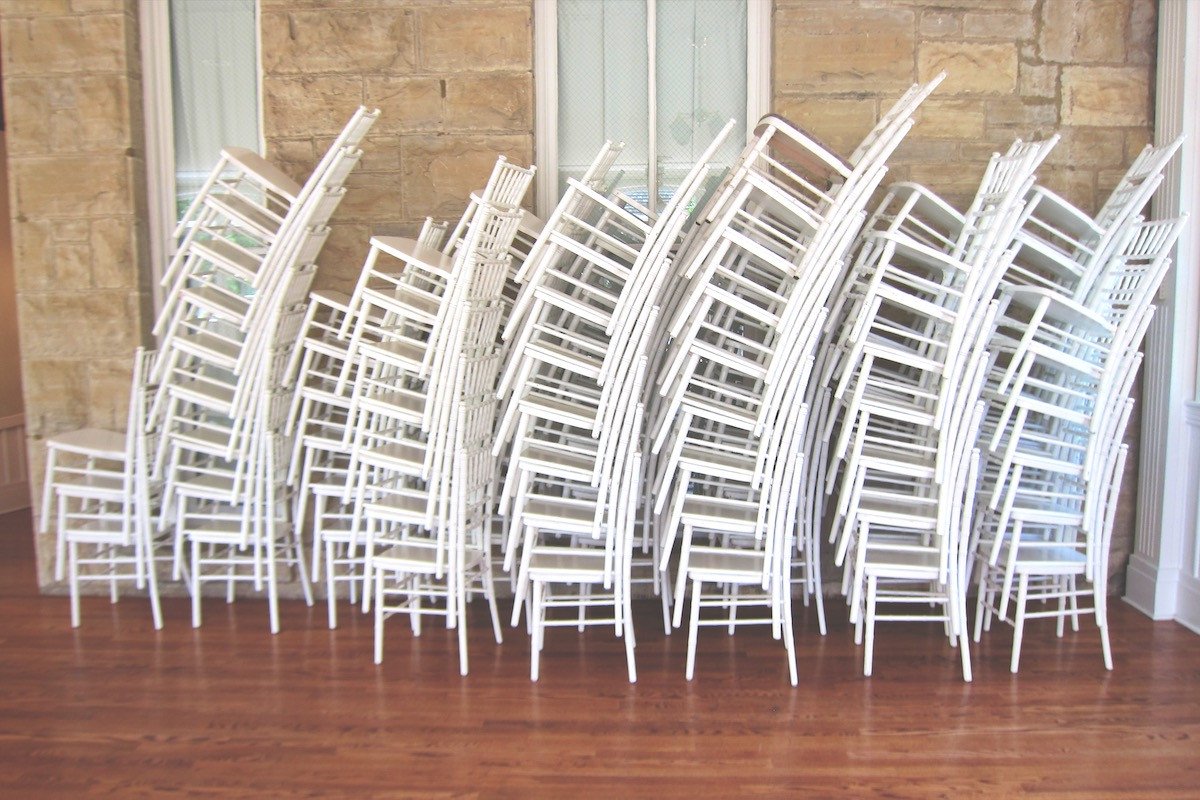"What do you do?"
By a show of hands, who loves this question? Who loves it when someone, like your great uncle Sal, asks this question at a holiday gathering—and you know he's not going to "get" what you do?
This is a career site. Talking careers is what we do, all day, every day. However, let me tell you, I hate this question. Here are some responses I've received when I try to explain what I do.
- Oh...cool.
- Wait, how are women's careers even different?
- Oh, you're a blogger?
- You should write about _____.
It can feel like—unless you're an attorney, a brain surgeon, or you have a seriously fascinating job (like a
freaking astronaut) people don't really care too much about what you do. And, in fact, the question "What do you do for a living?" is actually considered quite rude outside of North America.
The French, in particular, hate this question. In their book,
The Bonjour Effect: The Secret Codes of French Conversation Revealed, authors Julie Barlow and Jean-Benoît Nadeau elaborate on why you should never ask a French person what they do for work. Why? There are a few reasons the French hate this question. It's because it's a boring topic—and there are many more interesting things to speak about.
Unfortunately, many of us aren't in Le Marais crunching on a perfect croissant, so we had to figure out an interesting way to answer this question.
Tell a story.
*If you buy something through our links, Career Contessa may earn an affiliate commission.
When a Family Member Or a Date Asks "What Do You Do?"
Ah, it's the holiday season again—and you're back to making the same small talk you made with your great Uncle Jerry last year. You know the question is coming, so you might as well prepare for it. "So, uhh, remind me, what is it that you do for work?"
We created a process to make answering this question, dare we say, interesting? Make your work a story.
1. Make it a story with a beginning, middle, and an end.
So you don't want to pull out your LinkedIn profile and list your skills and responsibilities? We don't blame you. Instead, transform your career into a story—one that you can tell Uncle Bob, Aunt Sue, and your second cousin Simon (who keeps inviting him, by the way?)
2. Distill your job down to two of its most interesting main functions
Since the idea is to make this a story, think about the most interesting aspects of your job—and how you do those tasks. Avoid cumbersome jargon and industry-speak.
3. Share a specific story that illustrates the challenges of your job—and some victories you’ve had.
Some examples can be a project you’re proud of, positive feedback from a client, or a meaningful outcome.
4. Include a relatable anecdote about your job that clarifies your job function in relatable terms.
For example, if you work in Search Engine Optimization and you’re explaining your job to your grandmother, she's likely not going to understand some of the terms (no disrespect to Nanna!). Make it relatable to her. Here's what you could say:
“You know when you’re at an unfamiliar grocery store and you’re looking to find the cereal? SEO Managers are sort of like the people who write the names of the aisles to make everything easier to find.”
When a Networking Connection Asks "What Do You Do?"
When a networking connection or a potential future employer asks you what you do, your approach is going to be a little different, but we still think using a little story sparkle is always a good idea. Why? It infuses creativity into your approach to what you do. It shows your connection that you're intertwined with your career in a way that goes deeper than a bland job description.
In short, a storified explanation approach to "what do you do" shows how you and your job's function are creatively intertwined.
1. State your job role and the main pain point you solve.
The reason many people fumble when asked this question is that they're not prepared. As a result, we panic and blurt out our job title...and that's it.
2. Tell a story that illustrates your job function
You guessed it. This is a lot like the story we're telling Aunt Ida at the holiday party. This story should take your job title, the pain point you described, and unite them in a story.
Since you're talking to someone who is likely more knowledgeable in your field, you may use some impressive jargon, but not too much. Too much jargon is...too much.
3. Be relevant to the person you're speaking to
You might not be pitching yourself for a new job at this moment, but it never hurts to leave a lasting impression. Take this time to make your job description relevant to whomever you're speaking with. Think about the experiences you have that'll resonate with or help the person you're speaking with.
When You Don't Want to Answer "What Do You Do?"
There are a few reasons you might not want to answer this question—and they're all valid.
Perhaps you're in-between jobs, you hate your current job, or you're just so incredibly burnt out from work that you cannot bear to speak about it. Whatever your reason may be, you can redirect the conversation to somewhere more interesting.
The "bridge the gap" approach
In this approach, you're not ignoring the question, but you're redirecting it. When someone asks about what you're doing for a living, you could redirect to something else—perhaps something you have in common with the person.
Pro tip: Lots of people love talking about themselves. If you can use this bridge to get this person talking about themselves, you're golden.
The "bridge" you could use is your excitement or enthusiasm for another project or endeavor or a common interest.
For example:
- "I've actually been reading this book that I think you would love. Let me tell you more."
- "I'm working on a project outside of my 9-to-5 that I feel you'd be super interested in. Let me tell you more."
- "I've been using my skills to work on building my personal website from scratch. I'd love to show it to you."
- "I'm expanding my photography skills by taking an online class and shooting every week."
Lead with your enthusiasm. It should be enough to distract from the intended question. If this doesn't work, you can simply state that you're not interested in discussing work.
In Conclusion
Many of us ask questions like "What do you do?" as a pleasantry. If you want to answer this question with delight, tell a story. When you don't want to answer this question, have some other exciting stories to share or engage with.
If you're looking for more on how to build a personal pitch, perfect a personal brand. edit your elevator pitch to sixty seconds or less, or other advice on pitching, we have lots. Here are a few resources:
*We want to let you know that some of these links are affiliate links. That means when you purchase some of the items we listed, Career Contessa could earn a small commission at no cost to you. We only recommend items we know and love. Thank you for supporting the brands that help support Career Contessa.











